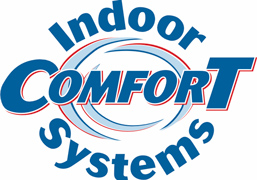
If you’re questioning whether your Croydon residence has poor indoor air quality (IAQ), it possibly does.
We are indoors a lot. In fact, we’re inside up to 90% of the time, according to the U.S. Environmental Protection Agency. And the air inside residences could be 2–5 times more contaminated than outdoors, which might create long-term health concerns.
Most Common Causes of Bad IAQ
We’ve put together a list of the most frequent origins of bad IAQ, the troubles they make and how you can take care of these indoor air pollutants. If you’re worried about the air inside your home, we suggest chatting with a expert like Indoor Comfort Systems HVAC about which solutions are ideal for your home.
Volatile Organic Compounds
Volatile organic compounds, or VOCs, are chemicals released by regular household products.
They’re found in paint and stains as well as:
- Furniture
- Carpet
- Building materials
- Cleaning products
- Cosmetics
- Air fresheners
- Candles
When these chemicals accumulate in your home, they may irritate your eyes, nose and throat. They may also lead to headaches and nausea. Regardless of whether your residence is in a rural or industrial space, an EPA study found indoor levels of these pollutants can be 2–5 times worse than the air outside your home.
Always adhere to the manufacturer’s instructions when painting or cleaning. Cracking a window can help vapors disperse faster.
Air purification systems can also help. This unit partners with your heating and cooling unit to freshen indoor air. When hunting for a system, ensure it’s specifically designed to wipe out VOCs.
Dust and Pet Dander
Dust and pet dander can irritate health problems like asthma and allergies, especially when it continually gets moved by your house’s comfort unit. While you can vacuum more routinely and buy an improved air filter, an air filtration system could be a better solution.
This solution hooks to your comfort equipment to give mighty filtration. Some models provide hospital-level filtration for eliminating particles and bioaerosols.
Persistent Odors
Newer houses are securely sealed to boost energy efficiency. While this is good for your energy expenses, it’s not so good for your IAQ.
Stuffy odors can hang around for a greater amount of time because your home is pulling in reduced fresh air. Since keeping your windows open all year-round isn’t an option, here are two approaches you can make your indoor air smell better.
An air purification system is placed in your ductwork to eliminate odors before they are redistributed. Search for one with a carbon filter and the ability to wipe out harmful VOCs. These units can also help keep your household healthy by wiping out most bacteria and ordinary allergy triggers like pollen and mold spores.
A ventilation system takes out stale indoor air and replaces it with fresh outdoor air. There are two kinds of units (heat recovery and energy recovery), so ask our professionals for more information on which type is right for your residence.
Uneven Humidity
It’s critical your residence’s humidity remains even. Air that has too much moisture can cause mold, while dry air can lead to respiratory issues.
Our professionals suggest 40–50% for ideal comfort. To keep yours in balance, think over getting a whole-home humidifier or whole-home dehumidifier with your heating and cooling unit.
In place of having to pull a humidifier from room to room, this product delivers balanced humidity across your house.
Carbon Monoxide
Carbon monoxide is colorless gas you can’t smell. It’s a byproduct of insufficient combustion in fuel-burning equipment, like gas heating systems, water heaters or fireplaces.
It produces an extreme health risk. In small levels, it can cause flu-like ailments like headaches and nausea. It can be deadly in large concentrations.
We advise yearly furnace maintenance to ensure your unit is working properly. This job allows our techs to find issues before they start, including malfunctions that can create carbon monoxide leaks.
The best way to keep your house free of carbon monoxide is to get detectors. These alarms must be on all floors close to bedrooms and living rooms.
Enhance Your Home’s Air Quality with the Indoor Comfort Systems HVAC Experts
Know that your home has bad air quality but not sure how to improve it? Or unsure which product is best for you? Give our friendly HVAC experts a call at 215-741-5505 or contact us online today. With free estimates and professional service, we’ll help you locate the best option for your home and budget.
